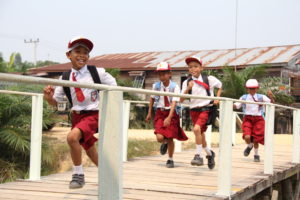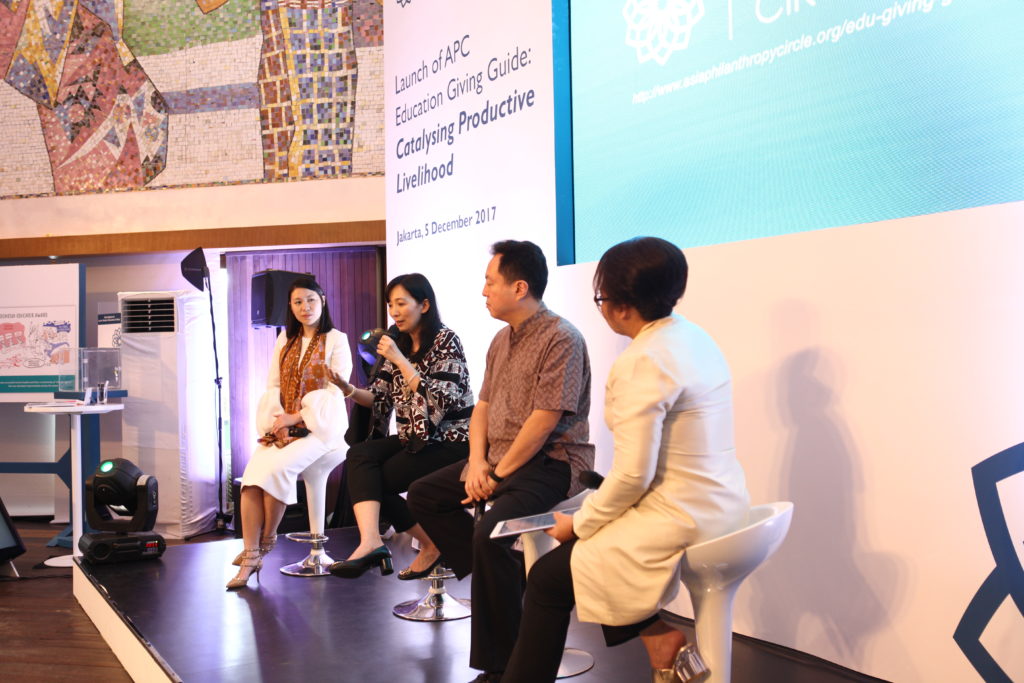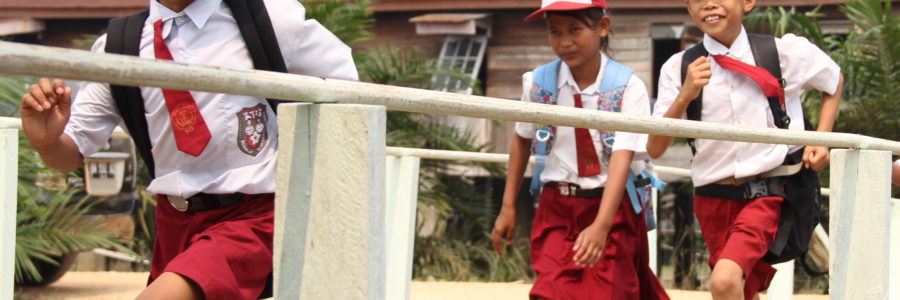By Mijail Santos Lujan

Committed to creating a greater impact through collaboration, two of APC’s Indonesia members Belinda Tanoto and Victor Hartono came together to spearhead an Education Giving Guide in Indonesia, with the aim of providing recommendations to private funders on education interventions with an accelerated path to scale and impact. With a vast trajectory in the field, the two APC members acknowledged that despite valuable efforts, education continues to face pressing issues. Thus, the motivation behind this project has been to broaden people’s access to quality education and to improve their livelihoods. By providing these recommendations, those who are looking to join the philanthropic efforts in the education sector will find it easier to identify impactful and feasible interventions that can create transformational impact.
Amidst a complex landscape, the guide provides an overview of the needs, gaps, white spaces, best in-class-models and past learnings. In order to understand the challenging issues comprehensively, the guide was developed through a thorough process that included desktop research, more than 25 in-depth expert interviews, 4 working sessions, 2 ideas labs, and numerous surveys to philanthropic organisations, students and employers. This engaging process allowed stakeholders to get involved and take ownership of the different recommendations.
The guide identified 4 major areas of opportunity for philanthropists. These areas were selected based on specific criteria to ensure the highest possible impact through actions that can realistically be carried out by philanthropists and other stakeholders such as NGOs and companies. The 4 areas with the biggest potential for philanthropic interventions are teacher quality, school leadership, early childhood development and vocational education.
While teacher quality is one of the strongest drivers of student achievement, Indonesia still faces absenteeism and low performance of teachers. Few top graduates to pursue a teaching career. There is also a lack of incentives and career progression, as well as insufficient training or in-service development opportunities.
School leadership is highly associated with student achievement. Nevertheless, in Indonesia only 2% of the principals are rated as competent in motivating teachers, and 8% as competent at leadership. Root causes are related to the absence of training and coaching for headmasters, the lack of community engagement and the fact that the selection criteria does not pick the top talent.
Furthermore, despite the widely-recognised idea that societal returns can be achieved with early childhood interventions, there is still room for improvement in Indonesia. Pre-primary school enrolment is lower than that of regional peers and almost 9 million children under five years are stunted. This can be attributed to access and quality issues, but is also related to the lack of awareness of the importance of early childhood development in the whole society, regardless of economic status.
Finally, it is believed that vocational education can have a strong impact on productive livelihood and Indonesia has increased its focus on this area. However, high youth unemployment rates and poor transition from school to work are still big issues. There are different contributing factors such as the low value that society places on vocational education compared to other academic pathways. Additionally, hands on training is still lacking, resulting in a mismatch between what the industry demands and what the schools supply.
Apart from the areas of intervention, the Giving Guide process allowed APC to identify two other major findings. The first one is that while philanthropists are active in the Indonesian education sector – and there is proof of progress across key education outcomes – several key gaps remain. This might be happening because initiatives are too small scale or geographic focused. The second finding suggests that for philanthropists to play an important role, greater collaboration is required. The true power of philanthropy is to catalyse change across the ecosystem.
A vast number of international and Indonesian stakeholders that were engaged in the process are now committed to continue exploring ways to collaborate and communicate with each other. This collaborative experience has already inspired philanthropists to take action and strengthen networks. These efforts aim to encourage the use of the report through joint actions.

The first event introduced the guide at a CXO roundtable to select funders and leaders in the education sector in Indonesia on 16 November 2017. The event generated awareness and action on the report with decision makers. Together with this effort, the APC members and champions of the 4 verticals will visit continue to engage with ministry officials to build buy-in for the findings.
On 5 December 2017, the guide was officially launched to the wider education sector community and the media to much enthusiasm and excitement for future collaboration and real impact for the sector. This represented a launch to the public as well. The event generated awareness and excitement for users and champions, thus building momentum for future collaboration. Finally, leveraging APC’s strong network of partners, members and friends, a microsite has also been launched so that the report’s findings can be accessed in an easy and interactive manner. This microsite includes the recommendations for each focus area. Read more by clicking here: http://www.asiaphilanthropycircle.org/edu-giving-guide-indonesia/
Thus, this effort has not only recognised the fragmented and lopsided funding in the education sector in Indonesia, but is also encouraging philanthropic efforts to jointly tackle the issue. The promise is that this sparks the start of many collaborative philanthropy efforts so that funders will be able to support the education sector with much greater impact.

